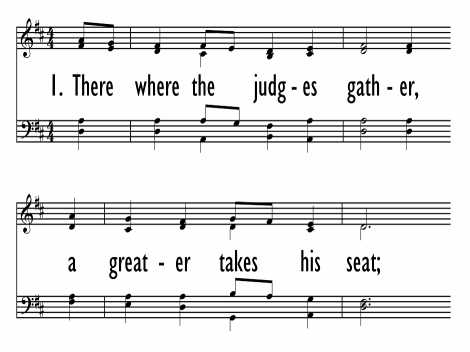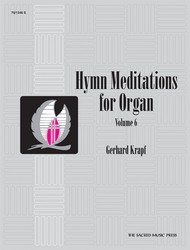292
There Where the Judges Gather
Copyright Information
- Text Copyright
- © 1976 Faith Alive Christian Resources
- Tune Copyright
- Public Domain
- Reprint/Projection Information
- Words: Permitted with a license from CCLI.com or from OneLicense.net. If you do not own one of these licenses, please contact the copyright holder for permission.
- Music: The Music is in the Public Domain; you do not need permission to project or reprint the Music.
Scripture References
Further Reflections on Scripture References
Interpretations of Psalm 82 vary on many details, but one thing is clear: the psalmist has seen–and most likely experienced–that those who wield authority on earth are prone to promoting injustice rather than defending the powerless and oppressed (see also 58). Yet God sits in judgment as the great King over all such rulers (st. 1), calling them sternly to account (st. 1-2). In spite of their arrogant confidence in their power (st. 2), the LORD will terminate their little season of authority with death. In faith the psalmist sees the supreme Judge presiding over the heavenly court and prays for God to establish his righteous rule over all the nations on earth (st. 3). In the post-exilic temple liturgy, this psalm was sung at the time of the morning sacrifice on the third day of the week. Henry Zylstra (b. Platte, SD, 1909; d. Amsterdam, the Netherlands, 1956) prepared the versification in 1953 for the 1959 Psalter Hymnal; it was slightly altered for the 1987 edition.
Psalter Hymnal Handbook
Confessions and Statements of Faith References
Further Reflections on Confessions and Statements of Faith References
Any song or testimony about the cries that comes from our nations and cities must be met with confessional statements about the mission of the church as listed here.
Our World Belongs to God, paragraphs 41-43 are explicit and pointed about the mission of the church: “In a world estranged from God, where happiness and peace are offered in many names and millions face confusing choices, we witness—with respect for followers of other ways—to the only one in whose name salvation is found: Jesus Christ.”
Later, Our World Belongs to God, paragraphs 52-54 point to the task of the church in seeking public justice and functioning as a peacemaker: “We call on our governments to work for peace and to restore just relationships. We deplore the spread of weapons in our world and on our streets with the risks they bring and the horrors they threaten…”
The Belhar Confession, section 3 calls the church to be a peacemaker, and section 4 calls the church “to bring about justice and true peace.”
Our Song of Hope, stanza 10 calls the church to seek “the welfare of the people” and to work “against inhuman oppression of humanity.”


 My Starred Hymns
My Starred Hymns






